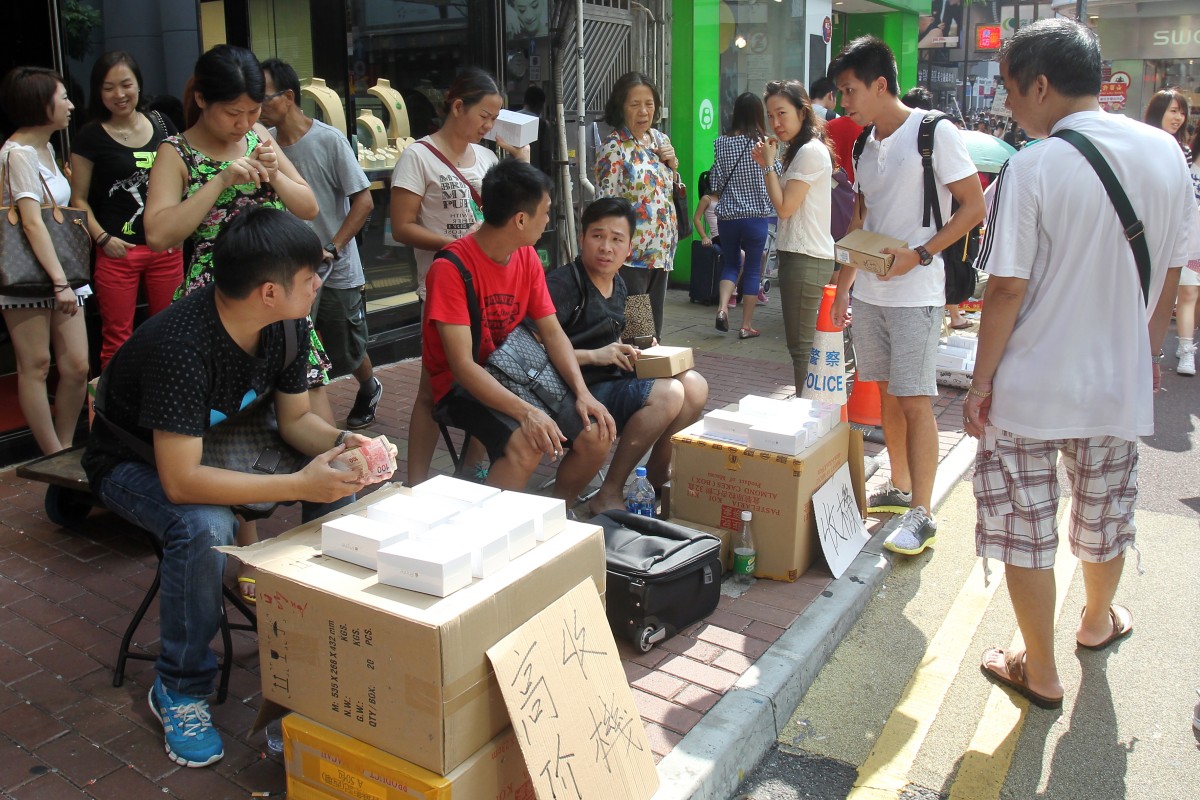
It's not just about the high price tag when it comes to the iPhone 6
 People buying and resell newly purchased iPhone 6 units outside Apple store in Causeway Bay.
People buying and resell newly purchased iPhone 6 units outside Apple store in Causeway Bay.Passing through IFC the other day, I found myself among hundreds of eager buyers waiting outside the Apple store.
This surprised me, as the iPhone 6’s new technical features are not particularly revolutionary. Sure, its screen is larger, its camera is more high-definition, and its digital display is sharper and clearer, but these are improvements we would expect any technology developer to make when releasing a new generation of smartphone. This begs the question: what is it about the iPhone 6 that makes consumers willing to queue outside the Apple store for hours, or offer tens of thousands of dollars on the grey market to hold the new iPhone in their hands?
In part, it has to do with its delayed release of the phone on the mainland, which has customarily been one of its largest consumer bases. Perhaps it is the company’s brand loyalty and its large following of Apple fans. Perhaps its success lies in its unique product branding. Although the logos of other tech giants may not be immediately obvious, the bitten apple is universally recognised. As a society, we have to ask ourselves: are we purchasing phones because we genuinely appreciate the phone’s features, or are we purchasing them because of peer pressure?
The continued purchase of the newest smartphones has several tangible consequences, one of which is the massive amounts of electronic waste created. As Hong Kong’s geographical area is limited in size, the disposal of this waste is often difficult. Electronic waste is particularly difficult to properly dispose of when compared with normal rubbish given that it often contains chemicals such as lead that are toxic in high concentrations.
Given the rapid rate at which technology is advancing, staying up-to-date becomes an absurd challenge: my Samsung S3, which I was proud to own just over a year ago, has already become outdated when compared to the newer models of smartphones that my friends own. Given the high cost of purchasing a new smartphone, in terms of both the price tag and the environmental destruction caused, the question we have to ask ourselves is: is it really worth it?